 Kyle MacLachlan as Paul Atreides in David Lynch's Dune Photo: AJ Pics/Alamy Stock Photo
Kyle MacLachlan as Paul Atreides in David Lynch's Dune Photo: AJ Pics/Alamy Stock Photo
Early 1981 , director David Lynch went to see the man about the film. The project was a sci-fi extravaganza set on an inaccessible desert planet. There was a treacherous Emperor, hand-to-hand combat using outdated medieval weapons, star-hopping space mystics and misunderstood natives who, with the help of heroes, rebel against the invaders.
The film was called Return of the Jedi, and Lynch abandoned it after suffering a severe migraine when producer George Lucas gave him a grand tour of his collection of Wookiee costumes.
But if Lynch is done with Star Wars, he's not done with science fiction yet. Even as Lucas tried to sway him to the dark side, extroverted Italian producer Dino De Laurentiis had an alternative suggestion. He wanted Lynch to helm Frank Herbert's $40 million adaptation of Dune, one of the greatest science-fiction novels ever and a text that is widely considered to have influenced Star Wars — not least Herbert.
Lynch had little interest in science fiction, and Dune, filmed at the sprawling Churubusco Studios complex in Mexico City, was a leap into the unknown. Tempted by De Laurentiis's advertising offers, he decided to take the leap anyway. This fall will end badly for everyone involved. Lynch has renounced Dune, the one film he wishes he had never made. He was not alone: Dune was considered a baroque disaster for many years: incomprehensible and absurd. If it was talked about at all, it was in the context of the notorious camp scene in which Sting, playing the villainous dandy Feyd-Rauta, fumbles around in a codpiece. The audience had no idea what was happening. As it turns out, so is Sting.
At least that was the thinking about Lynch's Dune, which was supposed to be the first part of a trilogy (Lynch started working on a sequel before the whole thing went crazy). But with the second half of Denis Villeneuve's brilliant Herbert novel dominating the global box office, it's fair to say the 1984 film no longer feels like a disaster for the ages. Many have a hidden love for him, despite his flaws and all. These include its star Kyle MacLachlan, who plays Timothée Chalamet as the boy prophet Paul Atreides. “I look at it as a flawed pearl,” he told IndieWire in 2020. “It's amazing in so many ways.”

Another fan is film journalist Max Every, who has written a fascinating oral history of the creation and the legacy of Dune — A Masterpiece in Disarray: David Lynch's Dune. He even tracks down Lynch, who talks about the project for the first time in decades.
“Such obvious flaws in Dune were a great reason to write the book,” Every tells me. “That meant following the theme: How did it get so wrong, especially with so many resources and such a brilliant young director behind it? The title «Masterpiece in Disarray» is very literal, as I truly believe that a masterful film was left on the cutting room floor and could have been put together either by Lynch himself, a la [Ridley Scott's director's cut of] Blade Runner, or over the years. from this point on without Lynch, a la Touch of Evil [re-edited in 1998, 13 years after the death of director Orson Welles]. As it stands, I believe that what exists now is still a fascinating film that deserves more recognition.»
The story Every tells in A Masterpiece in Disarray is often exciting, sometimes hilarious, and sometimes unbelievable. While MacLachlan was always the first choice to play Paul, we discover that Val Kilmer and Tom Cruise were also in the running to play the savior of humanity (as was the boyish Kenneth Branagh). Kilmer wanted to perform. Cruise, however, was stunned when he found himself auditioning opposite Sean Young's Chani (Zendaya) in Villeneuve's film.
“Tom didn’t play his best game,” Young Every admits. “I just remember he had no support. I was a little taller than Tom and I think that bothered him. He didn't want to audition opposite someone who was looking down.»
 Very strange: Kenneth MacMillan as Baron Harkonnen in Dune. Photo: AJ Pics/Alamy Stock Photo
Very strange: Kenneth MacMillan as Baron Harkonnen in Dune. Photo: AJ Pics/Alamy Stock Photo
If casting Paul was a protracted process, finding an actor to play musical warrior Gurney Halleck proved to be an even bigger headache. Josh Brolin is Commander Gurney in Villeneuve's Dune. Lynch initially chose veteran Aldo Ray. The problem was that Ray was a hopeless alcoholic, as it quickly became clear: “On the first day of filming, he didn’t leave the dressing room,” Dune producer Raffaella De Laurentiis (Dino’s daughter) tells Every. «We couldn't get him out.»
Ray arrived in Mexico early and attacked the city with renewed force. He got drunk, got into a fight and was arrested. When the police arrived, he also fought with them. And then when he got to sunset, he kept drinking. He was put on a plane back to Los Angeles without filming a single reel.
When his Gurney left, Lynch was close to panic. Wracking his brains, he asked, “What about that actor we met in London?” That actor was Patrick Stewart, whom Dune producers had seen in Henry IV. Stewart flew straight to Mexico. But when he arrived, Lynch did not recognize him: on stage in London, Stewart wore a huge beard. Stripped of the bushes, he looked completely different — at first the director had no idea who Stewart was or what he was doing on the set.

Stewart reacted to Sting in much the same way. A wave of excitement swept through the production as The Police frontman arrived to play Feyd-Rauta. Stewart, however, did not pay attention to the fuss. He asked Sting what band he was in. “The Police,” the singer responded. — Do you play in the police band? — answered an incredulous Stuart.
Stewart was also apparently unfamiliar with L.A. soft rockers Toto, who took a break from massaging FM radio ears to compose the dreamy, moody soundtrack for Dune (the power trio of Brian Eno, Roger Eno and Daniel Lanois ). was parachuted in to write the additional track Prophecy Theme). Dune was the only soundtrack for Toto's film, and it's fair to say they didn't enjoy the experience.
«In my opinion, it was the only soundtrack for us,» Toto guitarist Steve Lukather. Every said. «It's a very hard and tiring job, and I just want to run around, perform, bust my ass, get paid and go home.» />The Boy in the Iron Pajamas: Sting as Feyd-Rauta Photo: Entertainment Pictures/Alamy Stock Photo
While all this was happening, the budget was growing rapidly, and Lynch had to wind down filming. He was naturally good-natured — as cheerful and straightforward as his films were strange and sinister. But even he began to stagger. One of the hot spots came when Sean Young invited her sister to the set. In the middle of the stage, she glanced playfully at her brother. — Lynch snapped.
“Fuck off or get the hell off my set!” Lynch said so, according to Molly Reen, who played Fremen Haru (her role was cut from the film's theatrical release). “David said, damn it. Horror! We all froze in shock and perhaps fear. If David, the sweetest person on the planet, loses his temper, what happens next? There was deathly silence on the set.»
That Dune would be an ordeal was probably written in the stars. Before Lynch, several directors were interested in the project, including Ridley Scott, who was courted by De Laurentiis but dropped out when Scott's older brother, Frank, died suddenly of cancer at 45.
In the early seventies, a French consortium acquired the rights to the novel and hired avant-garde filmmaker Alejandro Jodorowsky to direct. As the 2013 documentary Jodorowsky's Dune recounts, his film could rival Lynch in his prime for out-of-body weirdness. He planned a 14-hour feature-length film starring his son Brontis as Paul, artist Salvador Dali as the treacherous Emperor Shaddam IV, Orson Welles as the corpulent villain Vladimir Harkonnen and Mick Jagger as Fade — with music by Pink Floyd.
 Iconoclastic beauty: one of H. R. Giger's designs for Alejandro Jodorowsky's Dune. Photo: Alain JOCAR./AFP
Iconoclastic beauty: one of H. R. Giger's designs for Alejandro Jodorowsky's Dune. Photo: Alain JOCAR./AFP
Jodorowsky's work could be the best or worst blockbuster of all time—perhaps both. However, with $2.5 million of the $9.5 million budget already spent on pre-production, funding dried up. The film was destined to exist only in the artist's imagination.
“His version of Dune would have been a work of iconoclastic beauty,” Every says. “I still hope that someone can someday make an animated film from [French comic book artist] Moebius' storyboards. In all likelihood, his expansive vision for the project could be in even worse jeopardy than Lynch's on the road to completion.
“But so many other brilliant films were stolen from his abandoned Dune project that in some ways it gave birth to sci-fi cinema as we know it today, from Star Wars to Blade Runner to The Fifth Element.” . Even a Marvel movie like Guardians of the Galaxy took inspiration from Chris Foss's artwork for Jodo's Dune, so in some ways it was better as a seed movie from which many more would grow. Would the world be a better place without these films if there had been Jodorowsky's Dune instead? Would science fiction take a more psychedelic route? Who knows.»
 Scene from David Lynch's Dune Photo: Alamy
Scene from David Lynch's Dune Photo: Alamy
Lynch somehow managed to go beyond the scope of his film. Unfortunately, it was a huge bomb, bringing in only $31 million out of a whopping $40 million budget ($8 million more than Return of the Jedi's budget). Even more offensive to Lynch were the angry reviews.
“A real mess, an incomprehensible, ugly, unstructured, pointless excursion into the murky realms of one of the most confusing screenplays of all time,” said Roger Ebert. There were also accusations of homophobia — citing a scene in which Baron Harkonnen (Kenneth MacMillan) sexually rapes and murders a young orderly, bleeding him to death, film critic Robin Wood accused Lynch of «managing to be associated with homosexuality in the same scene as physical rudeness.» , moral decay, violence and disease.”
But, as noted, his reputation has improved over the years. One reason is its sheer strangeness: never before or since has such a strange sci-fi blockbuster appeared on screen. There's also Anthony Masters' extraordinary production design — rich and extravagant in a way that Villeneuve's more minimal Dune doesn't even try to match.
 A stain on his legacy: David Lynch with Dune author Frank Herbert Photo: Alamy Stock Photo
A stain on his legacy: David Lynch with Dune author Frank Herbert Photo: Alamy Stock Photo
Dune is what Guillermo Del Toro would call «eye white» rather than eye candy, as not only is it like an explosion of visual stimulation, but every set and costume tells you something about the culture of where you are and who you are. at any given time,” says Max Every.
Evry has finally tracked down Lynch, who still considers Dune a blemish on his record. “For me personally, Dune was a failure,” he tells the writer. “The reason is that I didn’t have the final version. I had no creative freedom.”
Lynch could not come to terms with the lack of a final version. He insisted on a three-hour show. Dino De Laurentiis, mindful of the realities of the film business, insisted on two hours, and the film reached the screen in a trimmed 137 minutes. Many consider this to be incomprehensible to those new to Herbert's complex universe. However, Dune 1984 remains unique — only Lynch could have done it.

“Writing the book not only increased my appreciation of the film itself, but also made me realize that it has real, devoted fans who, without irony, appreciate it as a work of art. There are so many pipeline tentpoles these days, like The Marvels or Fast X, that have no identity or signature other than the brand they exist under,” Every says.
“Despite the fact that Lynch's Dune is disastrously compromised, it carries the essence of the director in every single scene. The more I dug into it, the more I realized that Lynch also included so many personal elements, including his own spirituality. Modern audiences are largely programmed to ignore directors and stars in favor of brands.
“Even though the last two Dune films respected Herbert's intentions, I didn't get much of an impression of who Denis Villeneuve was. It's a pleasure to watch a film like Lynch's Dune.»
A Masterpiece in Disarray: David Lynch's Dune: An Oral History is out now; More information can be found at maxevry.com. Dune: Part Two is in theaters now





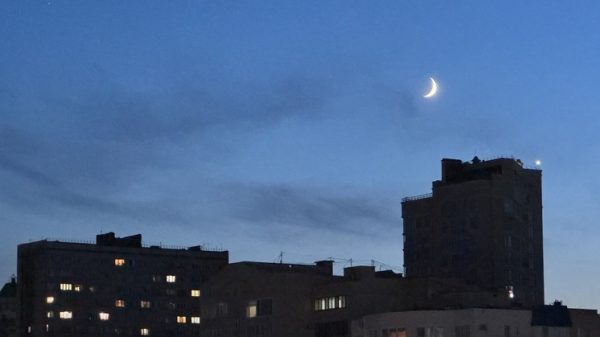








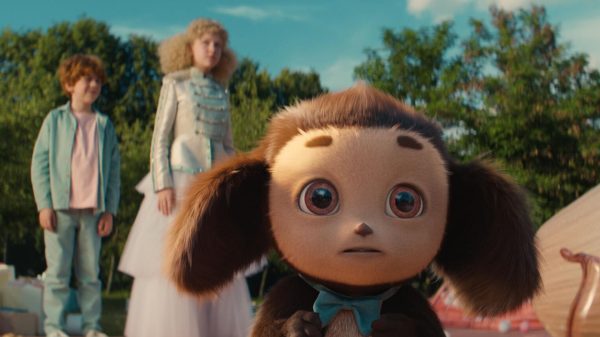


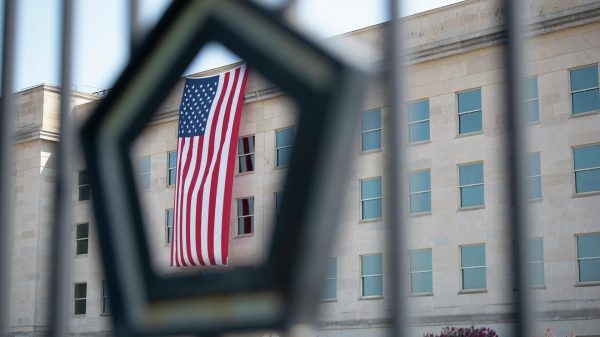


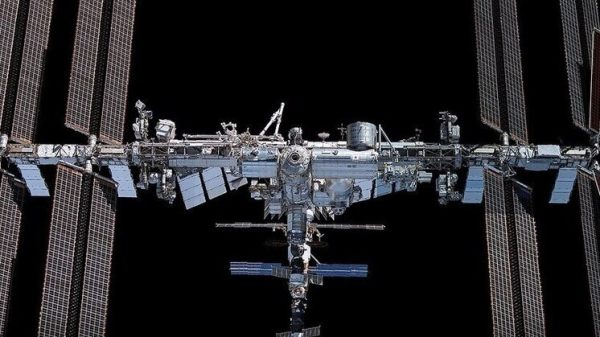






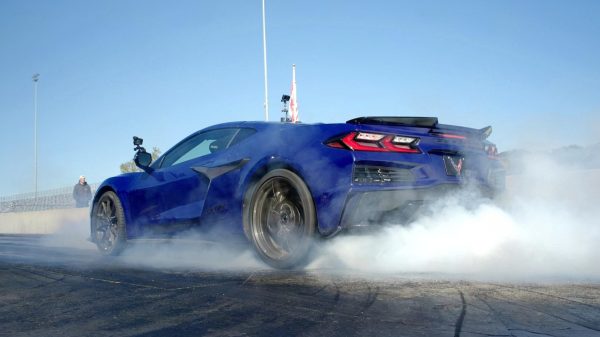






























Свежие комментарии